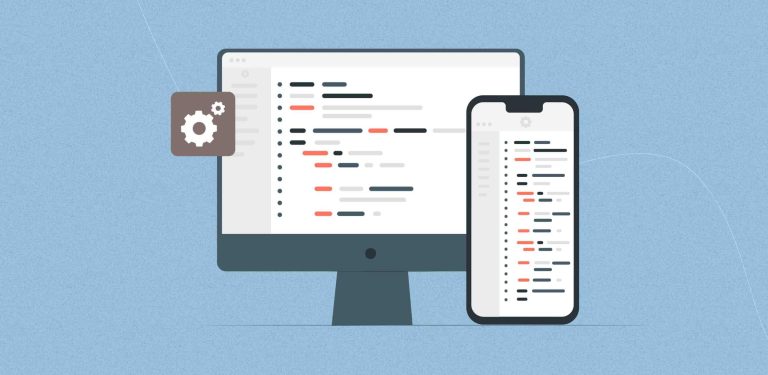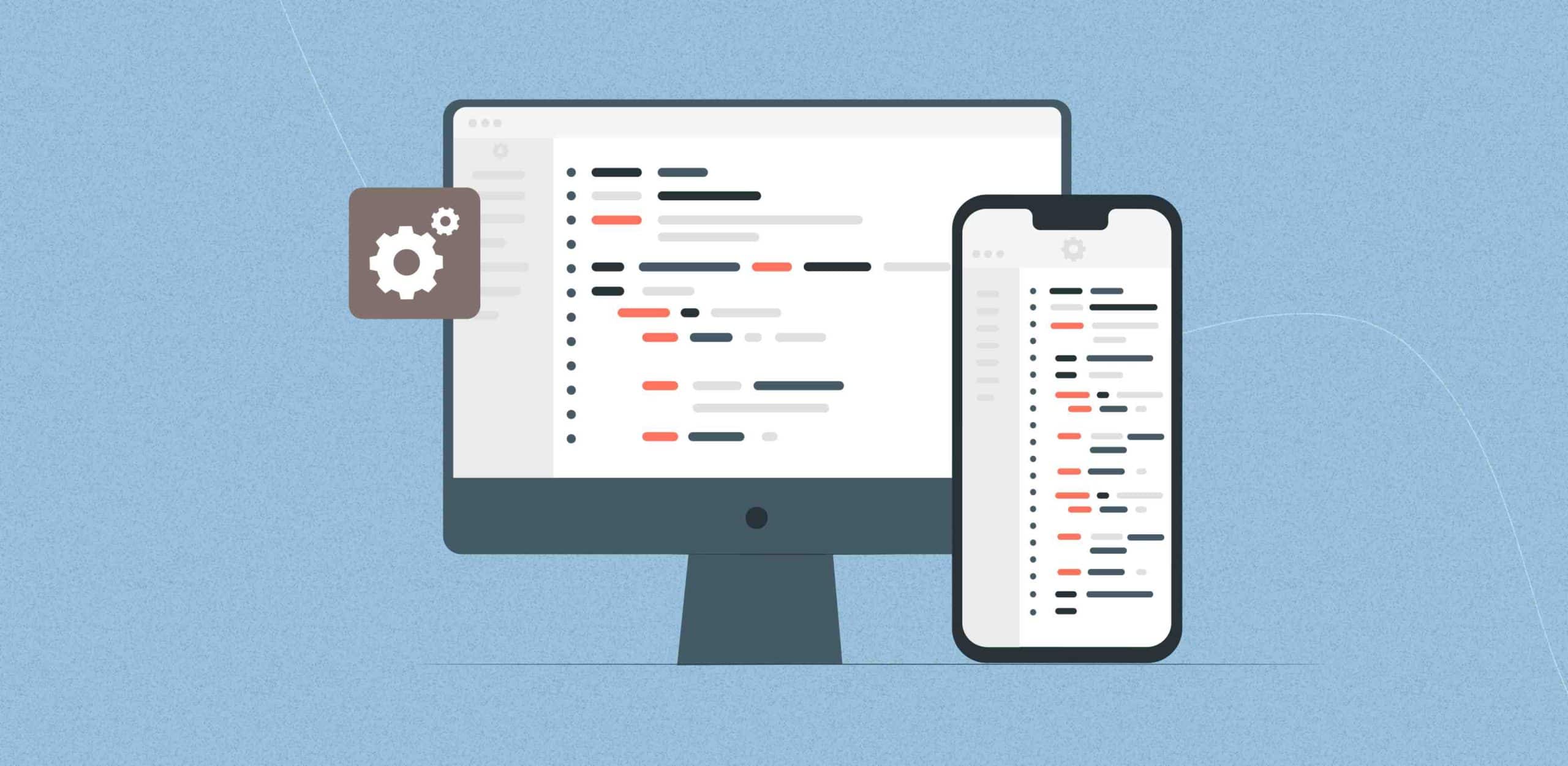


AI development is transforming the way businesses approach data-driven decision-making. In today’s digital landscape, organizations are inundated with vast amounts of data, but collecting data alone isn’t enough. The true value lies in the ability to extract actionable insights and make informed, strategic decisions—this is where AI development services become indispensable.
From automating complex data analysis to enabling predictive analytics, real-time processing, and advanced risk assessment, AI-powered solutions empower businesses to enhance efficiency, minimize errors, and gain a significant competitive edge. Whether it’s finance, healthcare, marketing, or manufacturing, AI is redefining how organizations operate, innovate, and drive growth.
In this comprehensive guide, we’ll explore the business impact of AI development services, delve into the key technologies behind AI-powered analytics, examine real-world applications, and discuss challenges, ethical considerations, and future trends. Let’s uncover how AI is reshaping the future of data-driven decision-making and business intelligence.
In the modern business landscape, data-driven decision-making is no longer a luxury—it’s a necessity. Organizations today generate massive volumes of data from various sources, including customer interactions, market trends, supply chain processes, and financial operations. However, the real challenge lies in processing this data efficiently and deriving actionable insights that can influence strategic decisions. This is where AI development services are proving transformative.
AI-powered solutions are enabling organizations to not only process vast datasets but also analyze, predict, and automate decision-making processes. This shift towards AI-driven strategies is helping businesses stay competitive, adapt to changing market dynamics, and achieve sustainable growth.
Here’s why businesses must prioritize AI-driven decision-making in today’s fast-paced environment:
Speed & Accuracy
AI systems excel at processing large datasets faster and more accurately than humans. Traditional data analysis methods are often time-consuming and prone to human errors, but AI-powered algorithms can analyze data in real time, ensuring precise insights without delays.
For instance, in the financial sector, AI systems can analyze vast amounts of transaction data to detect fraud patterns within seconds. In manufacturing, AI can monitor production lines and identify defects instantly, ensuring higher quality control.
Key Benefits:
Predictive Insights
One of the standout features of AI development services is their ability to deliver predictive insights. AI models, especially those using machine learning algorithms, can analyze historical data, identify patterns, and forecast future trends. This empowers businesses to make proactive and strategic decisions.
For example:
Key Benefits:
Automation of Repetitive Tasks
AI is a game-changer when it comes to automation. Businesses often struggle with repetitive and manual tasks that consume valuable resources. AI development services offer solutions that automate these tasks, freeing employees to focus on more strategic and creative initiatives.
For example:
Key Benefits:
Enhanced Customer Experience
In today’s competitive landscape, delivering a personalized and seamless customer experience is key to success. AI development services empower businesses to tailor experiences based on individual preferences and behaviors.
AI-powered systems analyze customer data to offer personalized recommendations, targeted advertisements, and customized product suggestions. For example, e-commerce platforms like Amazon use AI to suggest products based on browsing and purchase history, enhancing the buying experience.
Additionally, AI-driven chatbots provide instant and personalized customer support, resolving queries promptly and improving customer satisfaction.
Key Benefits:
Competitive Advantage
Incorporating AI into decision-making processes can give businesses a significant competitive edge. AI-driven organizations can adapt faster to market changes, identify new growth opportunities, and optimize operations more effectively than their competitors.
For instance, businesses that utilize AI-powered analytics can spot emerging trends before their competitors, allowing them to capitalize on opportunities quicker. Similarly, AI in logistics can optimize supply chains, reducing costs and improving service delivery.
Furthermore, companies using AI in product development can speed up innovation cycles, launching products that better meet consumer demands.
Key Benefits:
The Role of AI-Powered Analytics in Business Growth
Today, businesses ranging from startups to Fortune 500 enterprises are leveraging AI-powered analytics to enhance decision-making, optimize operations, and drive sustainable growth. AI development services empower organizations to extract valuable insights from complex datasets, ensuring smarter business strategies and efficient operations.
Companies that embrace AI in their decision-making processes can:
Explore our AI development services and how they can transform your business.
In an era where data is the new currency, AI development services empower businesses to make smarter, data-driven decisions with greater accuracy and confidence. By leveraging advanced technologies such as machine learning, natural language processing (NLP), and automation, AI enables organizations to streamline operations, identify market trends, and mitigate risks efficiently.
Here’s an in-depth look at how AI-powered development services enhance the decision-making process.
AI-Powered Data Analysis
One of the most significant advantages of AI is its ability to process and analyze massive datasets quickly and accurately. This ensures that organizations can extract actionable insights and make proactive, informed decisions.
Machine Learning Algorithms for Predictive Analytics
Machine Learning (ML) is at the core of AI-driven data analysis. These algorithms can identify patterns, detect anomalies, and forecast outcomes based on historical and real-time data. Here’s how predictive analytics, powered by AI, revolutionizes key industries:
By utilizing ML for predictive analytics, businesses can stay ahead of market trends, minimize operational risks, and enhance overall decision-making accuracy.
NLP (Natural Language Processing) for Sentiment & Text Analysis
In today’s digital landscape, businesses receive a massive influx of unstructured data in the form of customer feedback, reviews, social media comments, and support tickets. Natural Language Processing (NLP)—a key AI technology—enables organizations to analyze this data efficiently.
By leveraging NLP, businesses can gain deeper insights into customer behavior and enhance customer experience while streamlining operations.
Automation and Efficiency
AI development services introduce automation into data processing and decision-making, enhancing efficiency and reducing manual errors. This leads to faster, more consistent outcomes.
AI Automates Data Processing, Reducing Human Error
Traditionally, data processing involved manual tasks prone to human errors, inconsistencies, and delays. AI automates this process by:
This automation of data processing ensures that decision-makers have access to clean, accurate, and relevant data, enabling faster and more informed business decisions.
Real-Time Insights and Recommendations
In dynamic business environments, timely decisions can make the difference between success and failure. AI-powered tools enable real-time insights by:
Real-time AI-driven recommendations ensure that businesses can respond proactively to market changes, customer needs, and operational risks, giving them a competitive advantage.
Enhanced Accuracy and Risk Management
In addition to speed and efficiency, AI enhances the accuracy of decision-making processes and enables businesses to identify and mitigate potential risks effectively.
AI Minimizes Bias and Improves Forecasting Accuracy
Human decisions can be influenced by biases and incomplete data analysis. AI models, when designed ethically, help overcome these challenges:
By eliminating biases and enhancing data accuracy, AI ensures fair and well-informed decision-making processes.
AI-Based Risk Assessment in Finance, Healthcare, and Supply Chain
AI is also transforming risk assessment and mitigation across various industries:
By providing real-time risk evaluations, AI helps businesses to take proactive measures, reducing losses and enhancing operational efficiency.
Why AI Development Services are Essential for Businesses?
AI development services are redefining how businesses process information and make decisions. These advanced technologies enable organizations to derive actionable insights, automate processes, and enhance business strategies. Let’s explore the key AI technologies that are transforming data-driven decision-making across industries.
Machine Learning (ML) & Deep Learning (DL): Identifying Patterns & Trends
Machine Learning (ML) and Deep Learning (DL) are the foundation of modern AI solutions. These technologies allow systems to analyze large volumes of data, identify patterns, and make accurate predictions—all with minimal human intervention.
ML algorithms can track and analyze customer behavior by evaluating purchasing habits, online browsing patterns, and interaction histories. For instance, e-commerce platforms use ML to suggest personalized products based on previous searches and buying behavior, enhancing the customer experience and increasing conversion rates.
Businesses, especially in retail and manufacturing, use ML to forecast demand trends. By analyzing historical data and market trends, AI can help businesses optimize inventory management and avoid overstocking or stockouts.
In the financial sector, ML and DL models are employed to identify unusual patterns that could indicate fraudulent activities. These systems continuously learn from new data, improving their ability to detect threats and alert security teams promptly.
ML algorithms analyze patient data, medical histories, and lab results to predict potential health risks and recommend preventive measures. This not only enhances diagnosis but also improves patient outcomes.
Machine Learning and Deep Learning help businesses make informed, data-driven decisions by providing accurate forecasts and uncovering hidden insights within complex datasets. This ensures proactive decision-making and strategic planning.
Natural Language Processing (NLP) is a branch of AI focused on enabling machines to understand, interpret, and generate human language. In business, NLP is revolutionizing how companies process unstructured data, such as customer feedback, social media interactions, emails, and product reviews.
NLP tools analyze reviews, comments, and surveys to understand customer sentiment. Businesses can then identify trends, pain points, and customer preferences to refine their products and services.
NLP-powered chatbots and virtual assistants automate customer service by providing instant responses to common queries. This reduces the workload for human agents and improves customer satisfaction with 24/7 support.
NLP tools scan articles, reports, and market data to provide businesses with competitive insights. This helps organizations stay informed about market trends and make strategic adjustments.
NLP solutions can analyze and categorize internal business documents, making it easier for teams to access relevant information quickly. AI can also summarize lengthy reports, saving time and enhancing productivity.
By transforming unstructured text data into actionable insights, NLP helps businesses understand their customers better, refine strategies, and make more informed decisions based on real-time feedback and market trends.
Computer Vision is a powerful AI technology that enables machines to interpret and analyze visual information from images, videos, and digital media. It plays a crucial role in industries that rely on visual data for monitoring, security, and quality control.
AI-powered image recognition systems can automatically monitor stock levels, identify product defects, and streamline inventory management. This helps reduce operational costs and ensure optimal product availability.
Computer vision systems are used for real-time defect detection in manufacturing processes. AI algorithms analyze product images to detect imperfections, ensuring high-quality standards and minimizing losses.
AI-powered surveillance systems can detect suspicious activities, recognize faces, and monitor restricted areas. This enhances security by automating threat detection and alerting security personnel in real time.
AI-powered imaging tools help radiologists analyze X-rays, MRIs, and CT scans for early disease detection. This reduces diagnostic errors and enhances patient care outcomes.
In brick-and-mortar stores, AI cameras can track customer movement and behavior, helping retailers optimize store layouts and product placements for better sales.
Computer vision transforms visual data into actionable insights, enabling businesses to enhance operational efficiency, improve security, and make decisions based on accurate visual analytics.
Generative AI is one of the most transformative AI technologies, capable of automatically creating text, images, audio, and even code. For businesses, it significantly reduces the time and effort required for content creation while ensuring consistency and quality.
Generative AI can produce automated business reports, performance summaries, and data insights. For example, AI tools can analyze financial data and generate concise, informative reports for leadership teams.
AI tools can create personalized marketing emails, social media posts, and blog content based on audience preferences. This improves engagement while saving marketers significant time and effort.
Generative AI tools can analyze search trends and suggest content topics, helping businesses create content that resonates with target audiences. It also helps in optimizing existing content for SEO, improving search rankings and visibility.
AI-powered design tools generate social media graphics, promotional banners, and product images—enabling faster and cost-effective marketing campaigns.
AI-generated templates for emails, proposals, and presentations ensure consistent branding and professional communication across all departments.
Generative AI helps businesses scale content production, optimize marketing strategies, and accelerate reporting. It empowers teams to make faster, data-backed decisions while ensuring content remains aligned with business goals.
AI development services are revolutionizing how businesses across industries operate, make decisions, and enhance customer experiences. By leveraging AI-powered analytics, automation, and machine learning models, organizations are driving innovation, improving efficiency, and gaining a competitive edge. From finance and healthcare to marketing and manufacturing, AI is redefining traditional processes and enabling smarter, data-driven decisions.
Let’s explore how AI development services are making a real-world impact across different business sectors.
The finance industry is one of the earliest adopters of AI development services, leveraging AI-powered solutions to enhance efficiency, accuracy, and security.
AI algorithms analyze massive datasets in real-time to identify unusual transaction patterns and potential fraud. These algorithms can detect anomalies faster than manual processes, minimizing the risk of fraudulent activities in banking and financial services.
AI models can process large volumes of financial data to assess creditworthiness, investment risks, and loan eligibility. This allows for more accurate risk profiling, improving the decision-making process for financial institutions.
AI-powered trading algorithms can analyze market trends, news, and financial data to make faster and more informed trading decisions. These algorithms can optimize investment strategies and reduce the chances of human error.
Traditional credit scoring methods can be slow and sometimes biased. AI models analyze diverse data points, including spending habits, social behavior, and financial history, to improve credit scoring accuracy. This enables faster loan approvals and better financial inclusion.
AI development services are transforming the education sector by personalizing learning experiences and optimizing administrative tasks.
AI-powered platforms assess student performance and customize learning materials based on individual learning styles and progress. This personalized approach enhances student engagement and improves learning outcomes.
AI automates grading processes by evaluating multiple-choice, written, and even subjective answers with speed and accuracy. This reduces the manual workload for educators, allowing them to focus more on teaching and student mentorship.
AI-driven virtual tutors can provide 24/7 assistance to students, answering questions, explaining concepts, and offering additional resources, ensuring continuous learning.
AI can analyze data related to student engagement, attendance, and academic history to predict potential dropouts and suggest interventions for at-risk students.
The integration of AI development services in healthcare is reshaping diagnosis, treatment, and patient management processes.
AI algorithms analyze medical imaging data (like X-rays, MRIs, and CT scans) to detect diseases at an early stage. AI-assisted diagnostics offer higher accuracy, reducing misdiagnosis and enabling timely treatments.
AI evaluates patient data, including genetic information and medical history, to recommend personalized treatment plans. This ensures that patients receive the most effective and tailored healthcare solutions.
AI accelerates the drug development process by analyzing massive datasets to identify potential compounds, predict outcomes, and optimize clinical trials. This drastically reduces the time and cost of bringing new drugs to market.
AI-powered chatbots and virtual assistants provide 24/7 health guidance, schedule appointments, and offer medication reminders, improving patient engagement and care.
AI Development in Marketing & Customer Insights
Marketing has been revolutionized by AI, allowing businesses to offer personalized customer experiences and targeted campaigns.
AI analyzes consumer data from various channels, such as social media, purchase history, and web interactions, to predict preferences and behaviors. This enables businesses to create hyper-personalized marketing campaigns.
AI can segment customers based on behavior and preferences, helping businesses design tailored messages, offers, and promotions to increase engagement and conversion rates.
AI-powered chatbots offer instant support to customers, resolving queries, assisting with purchases, and providing recommendations. This reduces wait times and enhances the customer experience.
AI-driven sentiment analysis tools scan customer reviews and social media comments to provide insights into brand perception, helping businesses adapt their strategies accordingly.
AI Development in Retail & E-Commerce
AI is transforming the retail and e-commerce landscape by enhancing customer experiences, optimizing inventory, and improving logistics.
AI algorithms analyze customer browsing history, preferences, and purchase behavior to suggest relevant products. This personalization boosts sales and customer satisfaction.
AI helps forecast product demand, optimize stock levels, and reduce inventory wastage. Real-time insights ensure better supply chain management and cost efficiency.
AI-powered visual search allows customers to upload images and find similar products instantly, enhancing the shopping experience and increasing engagement.
AI analyzes market trends, competitor pricing, and customer demand to automate price adjustments, maximizing profitability and sales.
AI Development in OEMs (Original Equipment Manufacturers)
Manufacturing and OEM sectors are leveraging AI to improve production efficiency, reduce downtime, and enhance product quality.
AI-powered sensors and predictive models analyze machine data to predict potential equipment failures. This minimizes downtime, optimizes maintenance schedules, and reduces operational costs.
AI identifies inefficiencies in the production line, enabling real-time adjustments to improve quality and reduce waste. This leads to faster, more cost-effective manufacturing processes.
Computer vision and AI algorithms can inspect products for defects with higher accuracy than manual inspections, ensuring better product quality and customer satisfaction.
AI helps optimize logistics, predict demand, and manage supplier relationships, ensuring a smoother and more efficient production cycle.
While AI development services are transforming data-driven decision-making, they also present challenges that businesses must navigate. As AI models become more advanced, issues related to data privacy, security, bias, and transparency have come under scrutiny. These ethical considerations play a crucial role in shaping AI’s adoption across industries, ensuring that AI-driven insights are trustworthy, fair, and aligned with legal regulations.
For businesses leveraging AI-powered analytics and automation, addressing these challenges is not just a regulatory requirement but also a strategic imperative. Companies that prioritize ethical AI practices build consumer trust, reduce risks, and ensure sustainable AI integration. Below, we explore the three major challenges and how businesses can overcome them.
Data Privacy & Security Concerns
AI systems thrive on big data, collecting, analyzing, and processing vast amounts of user information to generate insights. However, this raises significant concerns about data privacy, security breaches, and compliance with global regulations such as:
Security Risks in AI-Driven Decision-Making
AI-powered analytics involve handling sensitive business and customer data, making them a prime target for cyberattacks, data breaches, and identity theft. Some of the key security risks include:
How Businesses Can Address Data Privacy & Security Concerns
To ensure responsible AI deployment, businesses should:
By prioritizing data security in AI-powered decision-making, businesses can safeguard customer trust and regulatory compliance while leveraging AI for growth.
Bias in AI Models & Ensuring Fair Decision-Making
How Bias Affects AI-Powered Decision-Making
AI models are only as unbiased as the data they are trained on. If AI algorithms learn from historical data that contains biases, they amplify and reinforce discrimination, leading to unfair decision-making. This is especially problematic in:
Sources of Bias in AI Models
There are three primary sources of bias in AI:
How Businesses Can Eliminate AI Bias
To promote fair AI development services, organizations should:
By addressing AI bias, businesses can build trust in AI-driven decision-making and create ethical, inclusive AI models that serve all demographics fairly.
Transparency in AI-Driven Decisions & The Role of Explainable AI (XAI)
Why Transparency is Critical in AI-Powered Decision-Making
One of the biggest concerns with AI models is their “black-box” nature—where businesses and consumers don’t fully understand how AI reaches a decision. This lack of transparency can lead to:
The Role of Explainable AI (XAI) in Business Intelligence
To address transparency issues, businesses are now adopting Explainable AI (XAI)—a set of techniques that make AI decision-making more interpretable and accountable.
XAI Benefits:
Best Practices to Improve AI Transparency in Decision-Making
Businesses can enhance AI transparency by:
By integrating Explainable AI (XAI), businesses can unlock the full potential of AI development services while ensuring accountability and consumer trust.
As AI development services continue to evolve, businesses are leveraging advanced AI-driven analytics and automation to improve their decision-making processes. However, the future of AI in business intelligence is not just about speed and efficiency—it is also about trust, transparency, security, and autonomy.
The next phase of AI development will focus on explainability, autonomous decision-making, and integrating AI with blockchain for enhanced security and transparency. Here’s a closer look at the top trends shaping the future of AI-powered decision-making.
The Rise of Explainable AI (XAI) – Making AI More Transparent & Interpretable
Why Explainable AI Matters?
One of the biggest challenges businesses face when using AI for decision-making is the “black-box” problem—AI models make decisions, but how they arrive at those conclusions is often unclear. This lack of transparency can lead to trust issues, especially in high-stakes industries like finance, healthcare, and law.
How XAI is Changing AI Decision-Making?
Explainable AI (XAI) focuses on making AI-driven decisions interpretable and understandable by:
Real-World Applications of XAI:
What to Expect in the Future?
With growing regulatory requirements (such as GDPR and AI Ethics guidelines), businesses will need explainable AI to maintain compliance and transparency. AI development companies are now focusing on creating AI models that not only predict outcomes but also explain them in human-readable formats.
AI-Powered Autonomous Decision-Making – Enabling Business Autonomy
What is Autonomous AI Decision-Making?
Traditionally, AI models provide recommendations to human decision-makers, but the next evolution of AI involves AI-powered autonomous decision-making—where AI not only analyzes data but also executes decisions without human intervention.
This trend is driven by advancements in:
How Autonomous AI is Transforming Businesses?
AI-driven autonomous decision-making is already being deployed in:
What to Expect in the Future?
Businesses are moving towards fully autonomous AI-driven operations, where AI will not just provide insights but also execute and optimize business decisions in real-time. AI-powered automation will play a crucial role in reducing human errors, increasing efficiency, and improving response times across industries.
However, ethical AI governance and regulations will be needed to balance automation with human oversight, ensuring responsible AI adoption.
Integration of AI with Blockchain – Securing AI-Powered Data Management
Why AI and Blockchain Together?
AI is incredibly powerful, but it relies on large volumes of data. With growing concerns around data security, fraud, and ethical AI usage, integrating AI with blockchain technology is emerging as a game-changer for secure and verifiable decision-making.
Blockchain technology enhances AI in three key areas:
How Blockchain-Integrated AI is Transforming Business Decision-Making?
What to Expect in the Future?
As cybersecurity threats continue to rise, businesses will increasingly adopt blockchain-powered AI solutions to secure financial transactions, healthcare data, intellectual property, and identity verification systems.
AI and blockchain integration will enhance data privacy, improve AI model security, and enable more transparent AI-driven decision-making in the future.
Integrating AI development services into your business strategy is no longer an option—it’s a necessity for staying competitive in a data-driven world. AI-powered solutions enable organizations to automate processes, enhance decision-making, optimize operations, and improve customer experiences. However, successful AI adoption requires careful planning, the right expertise, and a strategic approach.
In this section, we’ll explore how businesses can effectively leverage AI development services, from defining objectives to selecting the right AI partner and utilizing the best AI tools for decision-making.
Steps to Integrate AI into Data-Driven Strategies
Successfully implementing AI in business operations involves a structured approach. Here’s a step-by-step guide to integrating AI development services into your data-driven decision-making process:
Before implementing AI, businesses need to clearly define their objectives and how AI can help achieve them. AI applications should align with business goals, whether it’s improving customer experience, optimizing supply chain management, reducing operational costs, or enhancing risk assessment.
Key Considerations:
For example, an e-commerce company may use AI to improve personalized product recommendations, while a banking institution may implement AI for fraud detection and credit risk assessment.
Selecting a reliable AI development company is crucial for ensuring a smooth and successful AI integration. An experienced AI partner will have the necessary technical expertise, industry experience, and knowledge of AI frameworks to create custom AI solutions that fit your business needs.
Key Factors to Consider:
When evaluating AI service providers, look for companies that offer:
AI models are only as good as the quality of data they are trained on. To maximize AI effectiveness, businesses must ensure that AI algorithms are trained with high-quality, relevant, and unbiased data.
Steps to Train AI Models Efficiently:
For instance, an AI model trained for fraud detection in banking must be trained with historical transaction data to detect suspicious patterns effectively.
AI is not a one-time deployment—it requires continuous monitoring and optimization to ensure long-term accuracy and efficiency.
Why AI Monitoring is Essential?
Best Practices for AI Optimization:
For example, in customer service automation, businesses must continuously improve chatbot AI models based on customer interactions to enhance response accuracy and engagement.
Collaborating with the right AI development company is crucial for maximizing the benefits of AI-powered decision-making. A top-tier AI partner should provide:
When selecting an AI partner, evaluate past case studies and success stories to understand their expertise in:
By working with the right AI development company, businesses can seamlessly integrate AI into their operations and drive smarter decision-making.
Leveraging the right AI tools and platforms is essential for extracting actionable insights from data. Here are some of the top AI-powered business intelligence tools and cloud-based AI solutions:
Cloud-based AI platforms provide businesses with scalability, flexibility, and cost-efficiency. Some of the best AI cloud platforms include:
These platforms enable businesses to leverage AI without extensive infrastructure costs, making AI adoption more accessible and scalable.
For organizations focusing on data-driven decision-making, AI-powered BI and analytics tools provide powerful insights:
These tools enhance data visualization, automate reporting, and help businesses make data-backed decisions.
AI development services are revolutionizing data-driven decision-making across industries. By leveraging AI-powered analytics, businesses can improve efficiency, enhance customer experiences, reduce risks, and gain a competitive edge.
The future belongs to businesses that adopt AI-driven strategies to transform their operations. If you’re looking for an AI development company that can help you implement custom AI solutions, our expert team is ready to assist you.
Contact us today to explore how AI development services can take your business to the next level!
Do you have additional questions?
AI development services have transformed business decision-making by enabling faster, data-driven insights, predictive analytics, and automation. AI enhances accuracy, reduces human errors, optimizes resource allocation, and improves operational efficiency. Businesses use AI to analyze large datasets in real-time, forecast trends, detect risks, and make informed, strategic decisions.
Data-driven decision-making (DDDM) in AI refers to the process of using AI-powered analytics to analyze, interpret, and extract insights from structured and unstructured data. AI models can recognize patterns, predict outcomes, and recommend actions based on real-time business data, allowing organizations to make evidence-based decisions rather than relying on intuition.
To integrate AI development services, businesses should:
AI development services benefit a wide range of industries, including:
The most impactful AI technologies transforming decision-making include:
AI automates repetitive tasks, optimizes workflows, and reduces operational costs by:
While AI development services offer significant advantages, businesses may face challenges such as:
Some of the top AI-powered business intelligence tools include:
AI models analyze real-time transaction data, identify anomalies, and detect fraud patterns using machine learning. AI-based risk assessment helps businesses:
To find the best AI development partner, businesses should:

Founder, Concierge Care Plus








Founder, Concierge Care Plus